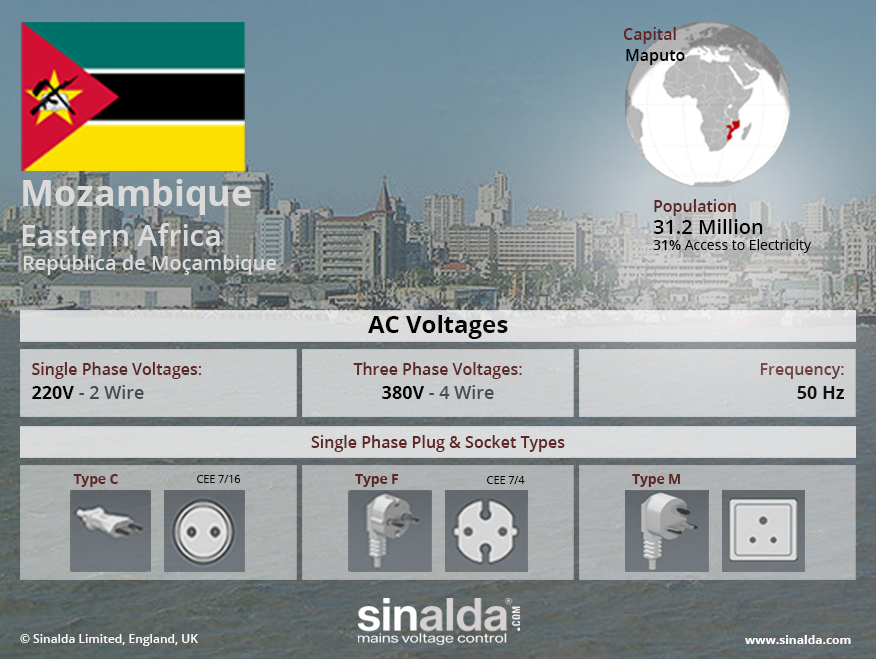Last Updated: 01 November 2021

Copyright 2021 Sinalda. Permission to use this image is granted subject to appropriate credit being given to www.sinalda.com as the source.
Power Quality in Mozambique
Mozambique is located in southeastern Africa, with over 30 million people. The country’s electricity supply network is mainly underdeveloped, with a significant portion of the population still lacking access to electricity. Power Outages and Brownouts are common occurrences.
Power Sector in Mozambique
Mozambique relies primarily on hydroelectric power for electricity generation, with the Cahora Bassa Dam being the largest hydropower plant in the country. The country also has small-scale diesel generators and gas turbines as backup power sources. The electricity supply network is managed by the state-owned company, Electricidade de Moçambique (EDM), which is responsible for generating, transmitting, and distributing electricity in the country.
Despite the significant potential for hydroelectric power generation, the electricity supply network in Mozambique is often unreliable, with frequent power outages, brownouts and load shedding experienced in many parts of the country. This is due to several factors, including inadequate infrastructure, poor maintenance of power plants and transmission and distribution lines, and limited fuel supplies for backup power sources.
The reliability of the electricity supply network in Mozambique is particularly poor in rural areas, where access to electricity is limited and power outages are more frequent. The government of Mozambique is aware of the challenges facing the country’s electricity sector and has developed several policies and initiatives to address them. These include investments in new power plants, upgrading existing infrastructure, and increasing access to renewable energy sources such as solar and wind power.
One of the major projects currently underway in Mozambique is the construction of the Mphanda Nkuwa Dam, which is expected to increase the country’s electricity generation capacity by 1,500 MW. The project is expected to be completed by 2031 and will significantly improve the reliability of the electricity supply network in the country.
Conclusion
In conclusion, the state of the electricity supply network in Mozambique is still week, with significant challenges that need to be addressed. The government and private sector must work together to develop new energy projects, improve the efficiency of the existing network, and increase the availability of affordable and reliable electricity to the people of Mozambique. With sustained investment and government support, the network’s reliability can be improved, and access to electricity can be expanded to more people across the country.
Share your Views and Experiences
Every reasonable effort is made to ensure that the information provided above is accurate. No guarantees for the accuracy of the information is made.
So we are able to keep the content updated, and actual on the ground experiences can be shared with others, please feel free to contact us.







